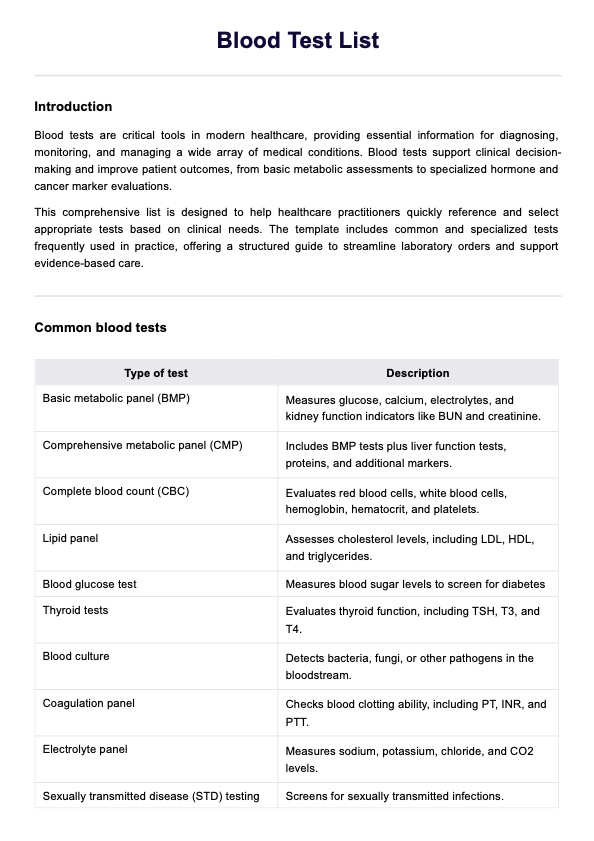The amount of blood drawn depends on the number and type of tests requested, but typically ranges from 1 to 6 vials (about 2.5 to 25 milliliters). Most tests require only a small sample and do not significantly affect the patient’s blood volume.

Blood Test List
Download Carepatron's free and comprehensive Blood Test List PDF and learn about different types of blood tests and their significance.
Blood Test List Template
Commonly asked questions
Blood test results can be available within a few hours to several days, depending on the complexity and type of analysis. Routine tests like CBC or metabolic panels are usually processed within 24 to 48 hours.
The primary purpose of a blood test is to help diagnose, monitor, or screen for medical conditions by analyzing components within the blood. It provides objective data to support clinical decisions regarding organ function, disease status, and treatment effectiveness.
EHR and practice management software
Get started for free
*No credit card required
Free
$0/usd
Unlimited clients
Telehealth
1GB of storage
Client portal text
Automated billing and online payments











